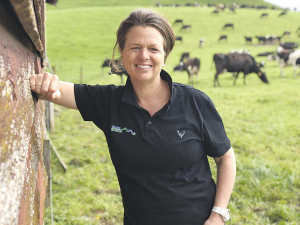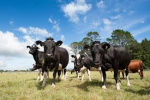A board position with the Dairy Women’s Network has opened up as Waikato dairy farmer Tracy Brown steps down from her role as a trustee.
Brown, who farms with her husband Wynn at Tiroroa Farms near Matamata, says the time was right to move on after over four years on the trust board.
“I joined in November 2015 with a vision to provide support to women in the dairy industry to better reach their potential and to help Dairy Women’s Network (DWN) become an organisation which could help drive transformational change for our industry,” Brown says.
“I feel I have had a big input into both of these areas.”
Brown has been awarded a Nuffield Scholarship for 2020 which will involve significant international travel over the next 12 months.
A DWN member since 2000 she has been leading environmental change for dairy through her roles as chair of the DairyNZ Dairy Environment Leaders Programme, chair of the Ballance Farm Environment Awards Alumni, and as farmer representative on the Dairy Environment Leadership Group (DELG) which oversees the Water Accord. She was also elected onto the DairyNZ board in late October last year.
An Agri-Women’s Development Trust ‘Escalator’ Alumni and winner of the ‘Sustainability Superstar’ in the 2018 Sustainable Business Network Awards, Brown was also a finalist in the 2017 Westpac Women of Influence Awards.
A former economist at the NZ Meat and Wool Boards Economic Service (now Beef + Lamb NZ) she was also involved with setting the future direction for dairy as farmer rep on the ‘Dairy Tomorrow’ Working Group.
Most recently Brown was appointed by Cabinet to the Essential Freshwater Independent Advisory Panel to advise the government on the proposed NPS, NES and proposed stock exclusion regulations.
The Brown’s 700 cow, 310ha (240ha milking platform) system 3 farm ‘Tiroroa’ won the Waikato Ballance Farm Environment ‘Supreme Award’ in 2010 and the Fonterra Farm Source ‘Responsible Dairying’ Award in 2018.
DWN trust board chair Karen Forlong who started at board table at the same time as Brown says she remembers her hitting the ground running with a wealth of knowledge that enabled her to contribute valuably from the onset.
“Her industry roles especially within the environmental space have given her insights that she shared with the board adding depth and understanding around the changes, challenges and opportunities confronting the dairy industry and the people who passionately go about the daily business of producing food,” Forlong says.
“The board wish her well on her new journey with DairyNZ and as a Nuffield scholar. DWN will still be her tribe and I am sure we will all no doubt see much more of Tracy in the future.”
“What Tracy’s move does do is open up the opportunity for someone else, in fact two others, to find themselves around the DWN Board table delivering insights and diversity of conversation that will allow us to be real and relevant to our members. This is exciting and testament to DWN’s mantra of leadership by doing.”
Brown says she believes in the work that DWN does and the role they play. “I want to ‘leave the ladder down’ to help other women into leadership and governance roles within dairy and would very much like to stay involved with DWN to help mentor the new Trustees.”











